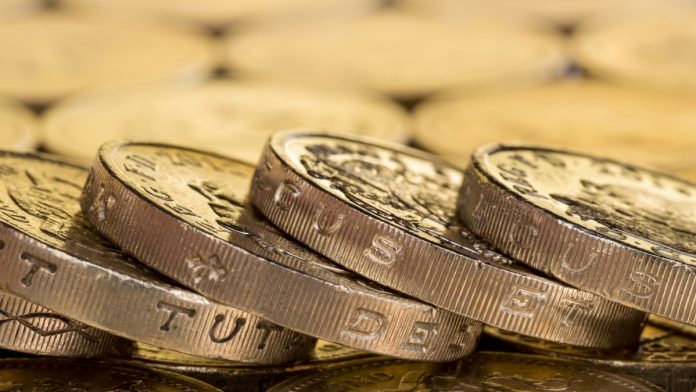- Pound (GBP) rises across the week
- BoE left rates on hold
- Euro (EUR) falls this week as the ECB likely to cut rates first
- French industrial output rise 1.1%
The Pound Euro (GBP/EUR) exchange rate is falling for a second straight day. The pair fell -0.05% in the previous session, settling on Thursday at €1.1718 and trading in a range between €1.1675 – €1.1729. At 11:00 UTC, GBP/EUR trades -0.13% at €1.1702.
The pound is falling against the euro on Friday; however, it’s still set to book gains across the week after the Bank of England left interest rates on hold and policymakers surprised with a more hawkish than expected vote.
Today, Bank of England chief economist Huw Pill warned that the UK was still some way from cutting interest rates. His comments come as inflation in the UK remains at 4% is double the central bank’s target.
His comments were in line with Bank of England governor Andrew Bailey, who considers that inflation needs to fall further towards the 2% target before policymakers will consider cutting rates.
So far, UK economic data is holding up relatively well, so recession fears are not dominating. However, if data deteriorates and recession fears pick up the pound could come under pressure.
The euro is pushing higher at the end of the week but remains down for a third straight week as the markets expect the European Central Bank will be one of the first major banks to cut interest rates and do so well before the Bank of England.
The market is expecting the ECB to cut rates from April despite inflation data this week showing that core CPI is stickier than expected.
Today, the eurozone economic calendar was relatively quiet, with just French industrial production, which came in stronger than forecast. French industrial output rose 1.1% in December.
Looking ahead to next week, the economic calendar for the eurozone sees the focus on eurozone retail sales.
Eurozone retail sales will come after German retail sales slumped by 1.7% in January, highlighting the squeeze that households are facing as interest rates remain at a record 4%. Given that Germany is the eurozone is not just economy, this doesn’t bode well for the eurozone.





